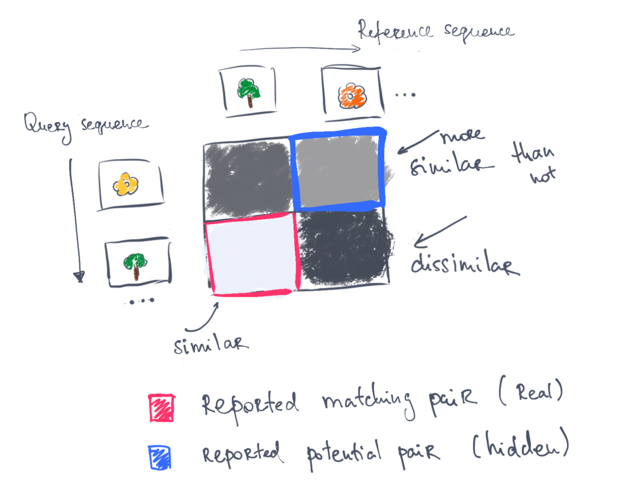This project proposes a framework for outdoor visual place recognition.
It can recognize visually similar places in GPS-denied environments. Thus, can serve as a candidate search technique in the context of full 6 DoF robot pose estimation.
Visual place recognition, also known as "weak localization", is performed here by matching sequences of images. The assumption is then that the input is a sequence of images. The program outputs the ids of image pairs that represent the same place. The matching pairs are also visualized as concatenated images.
Prerequisites:
sudo apt-get install -y build-essential libopencv-dev libyaml-cpp-dev libprotobuf-dev libprotoc-dev protobuf-compiler
Tested on Ubuntu 20.04.
To build the code:
mkdir build
cd build
cmake ..
make -j4
To be able to use the python part, for example for visualization, I recommend setting up a virtual environment of your choice and installing the provided requirements through:
pip install -r requirements.txt
Requires Python 3.8+.
The code is under continuous development but at any point in time you should be able to run the matching procedure through:
cd src/python
python run_matching.py \
--query_images <path_to_images> \
--reference_images <path_to_images> \
--dataset_name <dataset_name> \
--output_dir <path_to_folder>
--write_image_matchesThe framework assumes that there is a query image sequence, for every image of which the user wants to find the corresponding image in the reference image sequence.
The run_matching.py script stores all the results in the user-provided output_dir. The user also needs to specify the name of the dataset, for example, "my_awesome_dataset".
For more details about the parameters, please use python run_matching.py --help.
For more details about the underlying method and the interpretation of the results, please have a look at paper.
Here is a sketch of what roughly is happening for those who don't like to read much 
This repository is a continuation of my previous works vpr_relocalization and online_place_recognition.
The plan is to gradually modernize and improve the code by preserving the essential capabilities of the system.
Essential capabilities:
- Given two sequences of images compute the matching image pairs.
- Scripts to visualize the results.